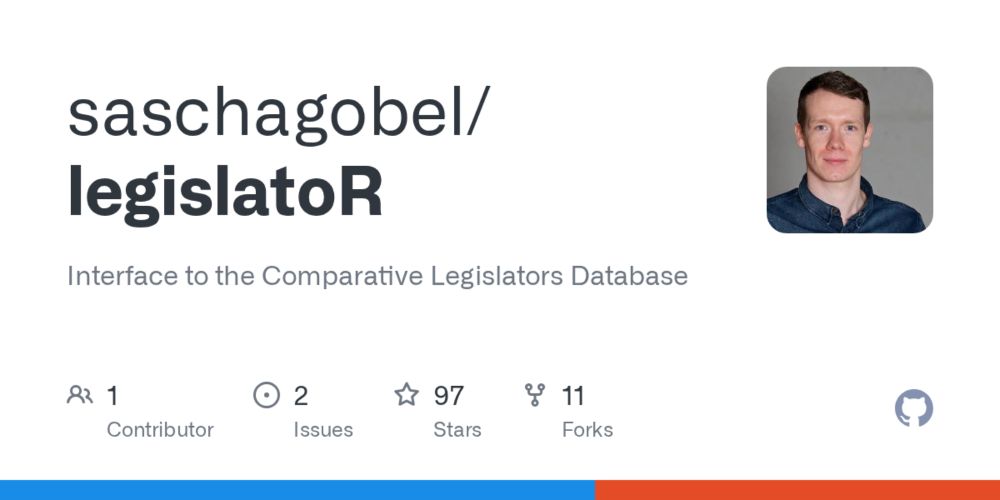
Resul Umit
@resulumit.bsky.social
Political scientist. Associate professor in comparative politics, at Durham University.
https://resulumit.com/
https://resulumit.com/
In some districts, the leading party also recieved a bonus.
I am not sure which districts had this bonus. I am also not sure, if the bonus was alwas a single seat or whether it could be multiple seats.
I am not sure which districts had this bonus. I am also not sure, if the bonus was alwas a single seat or whether it could be multiple seats.
October 22, 2025 at 11:12 AM
In some districts, the leading party also recieved a bonus.
I am not sure which districts had this bonus. I am also not sure, if the bonus was alwas a single seat or whether it could be multiple seats.
I am not sure which districts had this bonus. I am also not sure, if the bonus was alwas a single seat or whether it could be multiple seats.
Now I realise that Turkey’s 1991 electoral system was unusually complex.
It combined double thresholds (national and district) with, for some districts, bonus seats.
Parties had to pass a 10% national threshold and a local quota to win MPs. This local quota varried according to magnitude.
It combined double thresholds (national and district) with, for some districts, bonus seats.
Parties had to pass a 10% national threshold and a local quota to win MPs. This local quota varried according to magnitude.
October 22, 2025 at 11:09 AM
Now I realise that Turkey’s 1991 electoral system was unusually complex.
It combined double thresholds (national and district) with, for some districts, bonus seats.
Parties had to pass a 10% national threshold and a local quota to win MPs. This local quota varried according to magnitude.
It combined double thresholds (national and district) with, for some districts, bonus seats.
Parties had to pass a 10% national threshold and a local quota to win MPs. This local quota varried according to magnitude.
I think Balikesir was divided into two districts, Balikersir-1 and Balikesir-2.
Here is the official results document from the electoral commission, which shows several provinces had multiple districts:
www.ysk.gov.tr/doc/dosyalar...
Here is the official results document from the electoral commission, which shows several provinces had multiple districts:
www.ysk.gov.tr/doc/dosyalar...
www.ysk.gov.tr
October 22, 2025 at 10:12 AM
I think Balikesir was divided into two districts, Balikersir-1 and Balikesir-2.
Here is the official results document from the electoral commission, which shows several provinces had multiple districts:
www.ysk.gov.tr/doc/dosyalar...
Here is the official results document from the electoral commission, which shows several provinces had multiple districts:
www.ysk.gov.tr/doc/dosyalar...
This is surprisingly hard to find! I ran into a similar problem last year and couldn’t find any straightforward OLS example for an introductory methods module, so I ended up writing up analysis myself using the BES data.
August 12, 2025 at 9:50 AM
This is surprisingly hard to find! I ran into a similar problem last year and couldn’t find any straightforward OLS example for an introductory methods module, so I ended up writing up analysis myself using the BES data.
Yes, Wikipedia is indeed an excellent resource for data on MPs across many countries, and it has been put to great use in projects such as the legislators dataset and package (github.com/saschagobel/...).
For our purposes, though, it is a bit less helpful when it comes to variables on candidates.
For our purposes, though, it is a bit less helpful when it comes to variables on candidates.

GitHub - saschagobel/legislatoR: Interface to the Comparative Legislators Database
Interface to the Comparative Legislators Database. Contribute to saschagobel/legislatoR development by creating an account on GitHub.
github.com
August 9, 2025 at 9:36 AM
Yes, Wikipedia is indeed an excellent resource for data on MPs across many countries, and it has been put to great use in projects such as the legislators dataset and package (github.com/saschagobel/...).
For our purposes, though, it is a bit less helpful when it comes to variables on candidates.
For our purposes, though, it is a bit less helpful when it comes to variables on candidates.
Thanks to Chrome’s new OCR and Tabula, and a bit of elbow grease, we can now turn scanned return charges and campaign spending records like this into tidy data.
I’m beyond happy.
I’m beyond happy.

August 9, 2025 at 8:55 AM
Thanks to Chrome’s new OCR and Tabula, and a bit of elbow grease, we can now turn scanned return charges and campaign spending records like this into tidy data.
I’m beyond happy.
I’m beyond happy.
Indeed — voters seem to rely on different sources of information at different levels: this paper suggests that past elections have a particularly strong effect on expectations for constituency results, while opinion polls matter primarily for national-level expectations.
doi.org/10.1111/j.15...
doi.org/10.1111/j.15...

How Do Voters Form Expectations about the Parties' Chances of Winning the Election?*
Objective. This article examines the factors that form voters' perceptions of the parties' chances of winning at both the national and the local levels. Method. We make use of the 1988 Canadian Ele....
doi.org
August 5, 2025 at 9:27 AM
Indeed — voters seem to rely on different sources of information at different levels: this paper suggests that past elections have a particularly strong effect on expectations for constituency results, while opinion polls matter primarily for national-level expectations.
doi.org/10.1111/j.15...
doi.org/10.1111/j.15...
Thanks so much, Catherine! These are really helpful indeed.
July 10, 2025 at 11:22 AM
Thanks so much, Catherine! These are really helpful indeed.
I don’t have a specific example, but I would start by looking at papers citing the "Boix–Miller–Rosato dichotomous coding of democracy" --- either the original article (doi.org/10.1177/0010...) or the updated dataset (doi.org/10.7910/DVN/...).
Unless I have misunderstood the question, of course.
Unless I have misunderstood the question, of course.
June 30, 2025 at 11:15 AM
I don’t have a specific example, but I would start by looking at papers citing the "Boix–Miller–Rosato dichotomous coding of democracy" --- either the original article (doi.org/10.1177/0010...) or the updated dataset (doi.org/10.7910/DVN/...).
Unless I have misunderstood the question, of course.
Unless I have misunderstood the question, of course.
📢 The APSR is opening a new Research Notes track!
Authors may now submit directly as Notes—or, with editor agreement, have papers reclassified during review. Notes should be ≤7,000 words (excl. refs/appendices).
Authors may now submit directly as Notes—or, with editor agreement, have papers reclassified during review. Notes should be ≤7,000 words (excl. refs/appendices).
June 5, 2025 at 10:28 PM
For elections since 1885, we plan to include a measure of constituency area (un)change, using data from @parlconst.bsky.social.
As for notional results, I'm unsure whether area change alone is informative enough to estimate past outcomes under new boundaries. Or is it? 🤔
As for notional results, I'm unsure whether area change alone is informative enough to estimate past outcomes under new boundaries. Or is it? 🤔
June 2, 2025 at 11:22 AM
For elections since 1885, we plan to include a measure of constituency area (un)change, using data from @parlconst.bsky.social.
As for notional results, I'm unsure whether area change alone is informative enough to estimate past outcomes under new boundaries. Or is it? 🤔
As for notional results, I'm unsure whether area change alone is informative enough to estimate past outcomes under new boundaries. Or is it? 🤔
Currently, there are ten variables in the dataset.
What other candidate-level variables could we add, and from which sources?
Suggestions welcome!
What other candidate-level variables could we add, and from which sources?
Suggestions welcome!

June 2, 2025 at 8:49 AM
Currently, there are ten variables in the dataset.
What other candidate-level variables could we add, and from which sources?
Suggestions welcome!
What other candidate-level variables could we add, and from which sources?
Suggestions welcome!
Wikipedia has the exact date of birth for 372 MPs and approximate dates for 83 more. I’ve compiled this into a file and will email it to you in case it’s helpful, even if incomplete.
December 4, 2024 at 10:55 PM
Wikipedia has the exact date of birth for 372 MPs and approximate dates for 83 more. I’ve compiled this into a file and will email it to you in case it’s helpful, even if incomplete.
Non-EU member states show some of the most striking shifts in public opinion on EU membership.
In a hypothetical referendum on whether their country should join or remain outside the EU, support for joining has noticeably increased over time in most surveyed countries.
In a hypothetical referendum on whether their country should join or remain outside the EU, support for joining has noticeably increased over time in most surveyed countries.

November 27, 2024 at 10:04 AM
Non-EU member states show some of the most striking shifts in public opinion on EU membership.
In a hypothetical referendum on whether their country should join or remain outside the EU, support for joining has noticeably increased over time in most surveyed countries.
In a hypothetical referendum on whether their country should join or remain outside the EU, support for joining has noticeably increased over time in most surveyed countries.
Thank you! You're absolutely right that not everyone needs a visitor visa to travel to Canada for a conference, and one should check.
My post was about those who would need one, like myself.
My post was about those who would need one, like myself.
November 18, 2024 at 4:14 PM
Thank you! You're absolutely right that not everyone needs a visitor visa to travel to Canada for a conference, and one should check.
My post was about those who would need one, like myself.
My post was about those who would need one, like myself.

